Linguistic Risk-Taking
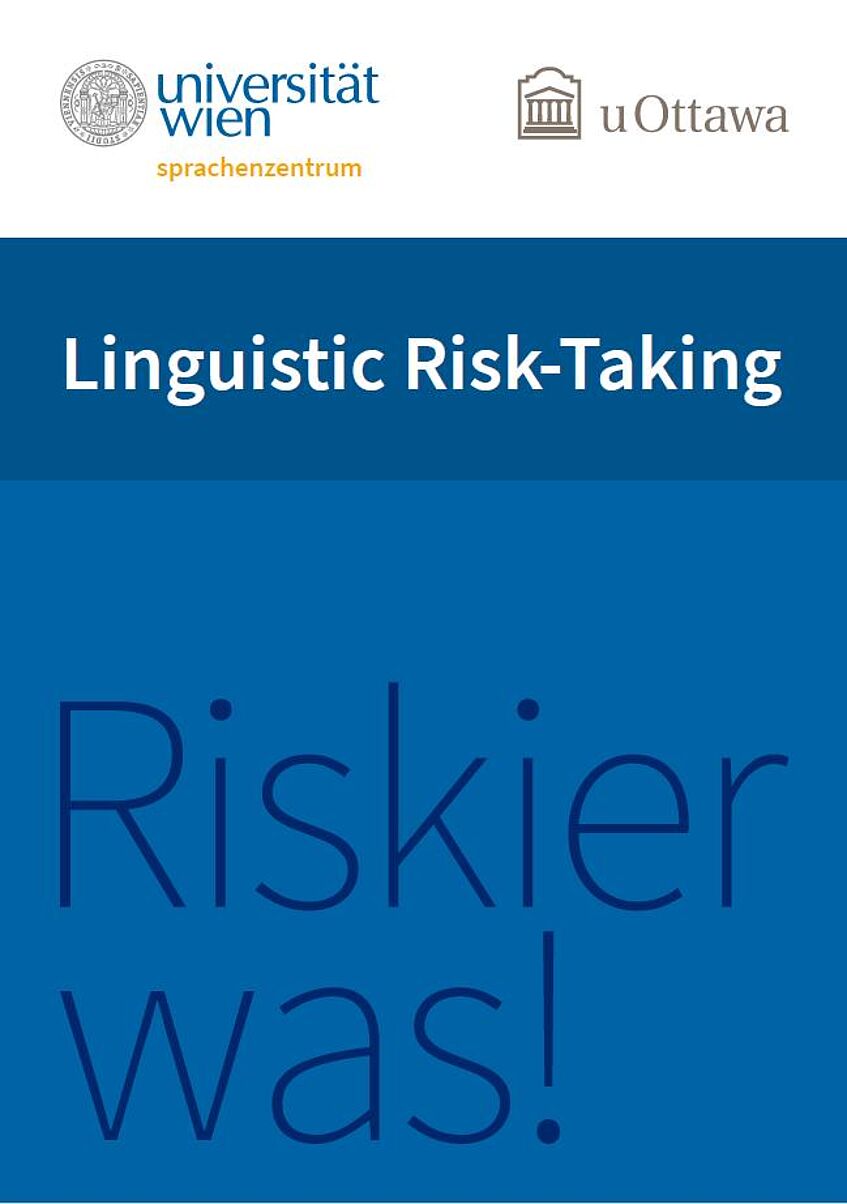
The Linguistic Risk-Taking Initiative, originally developed at the University of Ottawa, is a pedagogical initiative that refers to authentic, every-day communication tasks in a target language as risks, since learners oftentimes perceive of them as risky due to their potential of e.g. being misunderstood or making mistakes. In order that learners become aware of the numerous every-day situations in which they can use and practice their target language, the Linguistic Risk-Taking Passport was developed in Canada. This passport contains various every-day activities (so-called risks) that learners can undertake in their target language and tick off afterwards.
The project “The Linguistic Risk-Taking Initiative for German Learners in an Austrian University Context” focusses on the implementation of the Linguistic Risk-Taking Initiative in German courses at the Language Center of the University of Vienna that are part of the University Preparation Programme of the Vienna Universities (VWU). Through this initiative and the “Riskier was!”-Heft (“Risk something!”-booklet; the German counterpart to the Linguistic Risk-Taking Passport) specifically developed for this context, German learners shall be accompanied and encouraged to ‘risk’ using their target language German in every-day situations and benefit from it. At the same time, insights shall be gathered on how the “Riskier was!”-Heft is used by learners and how the initiative itself is assessed by both learners and teachers.
Linguistic Risk-Taking Initiative for learners of German in an Austrian university context

The project focusses on the implementation of the Linguistic Risk-Taking Initiative in German courses at the Language Center of the University of Vienna that are part of the University Preparation Programme of the Vienna Universities (VWU). Through this initiative and the “Riskier was!”-Heft (“Risk something!”-booklet; the German counterpart to the Linguistic Risk-Taking Passport) specifically developed for this context, German learners shall be accompanied and encouraged to ‘risk’ using their target language German in every-day situations and benefit from it. At the same time, insights shall be gathered on how the “Riskier was!”-Heft is used by learners and how the initiative itself is assessed by both learners and teachers.
| Project period | since 01/2018 |
| Funding | Cooperation with University of Ottawa (OLBI/ILOB) |
| Website |
Publications in the project
- Cajka, Stefanie. 2021. Die Linguistic Risk-Taking Initiative für Deutschlernende in einem österreichischen Universitätskontext. Wien: Universität Wien, Masterthesis. https://utheses.univie.ac.at/detail/59293
- Cajka, Stefanie; Ed, Griffiths, Nikolay Slavkov & Eva Vetter. 2023. Linguistic risk-taking and informal language learning in Canada and Austria. In Denyze Toffoli, Geoffrey Sockett & Meryl Kusyk (eds.), Language Learning and Leisure: Informal Language Learning in the Digital Age (Studies on Language Acquisition [SOLA] 66), 207-237. Berlin/Boston: De Gruyter Mouton. https://doi.org/10.1515/9783110752441-010
Further Information
Partnership
Contact
Media Appearances
- Riskier Was! - Video
The Study Passport: Adapting Linguistic Risk-Taking for Traveling German Learners
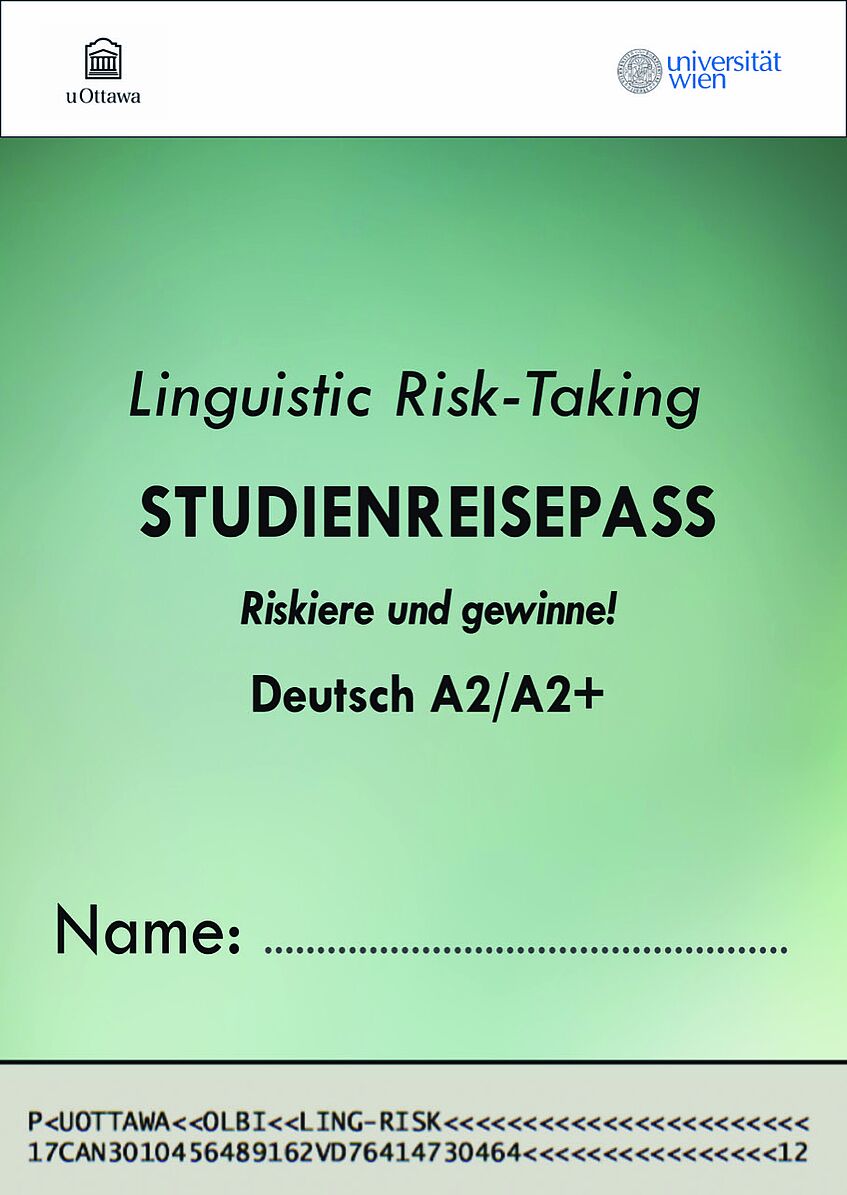
The study travel passport is an LRT task catalog adapted as part of Sebastian Windisch's doctoral project. The focus of this adaptation is on promoting the communicative competence of German learners through authentic language use during study trips or tourist stays in German-speaking countries. A central feature of this adaptation is the increased integration of gamification: based on the assumption that oral interaction in an authentic environment carries a higher linguistic risk, learners receive so-called Courage Points for each task. Participants document their activities, collect points and receive a gamification badge at the end as a visible expression of their commitment.
The tasks are based on level A2/A2+ and are linked to specific descriptors. The passport is supplemented by regional content, a travel dictionary and materials on Austrian German.
The passport was evaluated in two test cycles with students from the universities of Santiago de Compostela, Salamanca, Coimbra, Le Mans and Naples. The participants were accompanied on their study trips by OeAD lecturers as part of the Vienna campaign “Europe's youth gets to know Vienna” (BMBWF).
The project is part of study abroad research - a field in which little research has been conducted to date, particularly with regard to language use. This is precisely where the study passport comes in: It aims to motivate learners to break out of communicative routines and closed circles and make targeted use of linguistic scope for action in authentic situations within the short period of, for example, one week during their language or study trip.
The task catalog developed in the project was translated into the following languages. Sample pages can be downloaded here.
GERMAN:
https://phaidra.univie.ac.at/o:2132474
SPANISH:
https://phaidra.univie.ac.at/o:2132475
GALIC:
https://phaidra.univie.ac.at/o:2132476
ITALIAN:
https://phaidra.univie.ac.at/o:2132477
FRENCH:
https://phaidra.univie.ac.at/o:2132478
Link to Project Sebastian Windisch
Deutsch als Fremdsprache: Der LRT-Studienreisepass
You can download sample pages here:
A central feature of the LRT study passport is the integration of gamification: learners receive so-called Courage Points for each completed task, document their activities and receive a gamification badge.The tasks are based on level A2/A2+ and are linked to specific descriptors of the CEFR. In addition, the passport contains regional content, a travel dictionary and elements of Austrian German.The tasks are designed to break down language barriers in a motivating way and promote the targeted use of language in the target country.
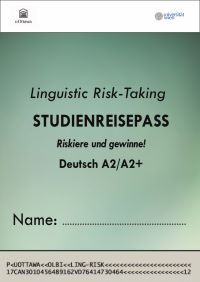
Spanisch: El pasaporte lingüístico. Quien no arriesga no gana
Aquí puede consultar un ejemplar de muestra del LRT-Pass:
The passport was presented for the first time on September 26, 2023 at the Facultad de Filología de la USC as part of the European Day of Languages.
→ Event
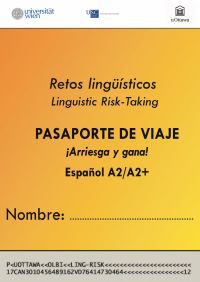
Galicisch: Pasaporte: Arrisca e gaña!
Aquí pode consultar un exemplar de mostra do LRT-Pass:
Also implemented on September 26, 2023 at the Facultade de Filoloxía da USC.
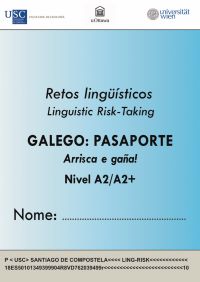
Französisch: Passeport de voyage : Prises de risques linguistiques
Consultez ici un exemplaire de démonstration du Passeport LRT:
The French version was created as part of the Publication in cooperation with Eva Vetter.
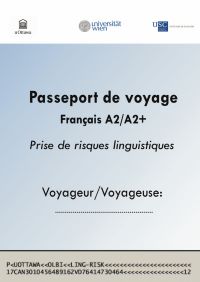
Italienisch: Passaporto di viaggio. Sfide linguistich
Qui può consultare una copia di esempio del LRT-Pass:
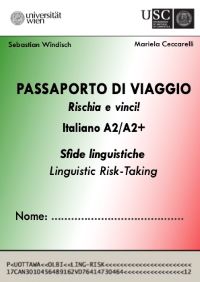
Contact
Interested?
Are you planning a trip to the target language area with your learners and would like to use one of the LRT passes?
Then please contact me!
Sebastian Windisch
sebastian.windisch@gmx.at
Download
File size: 1.3 MB
